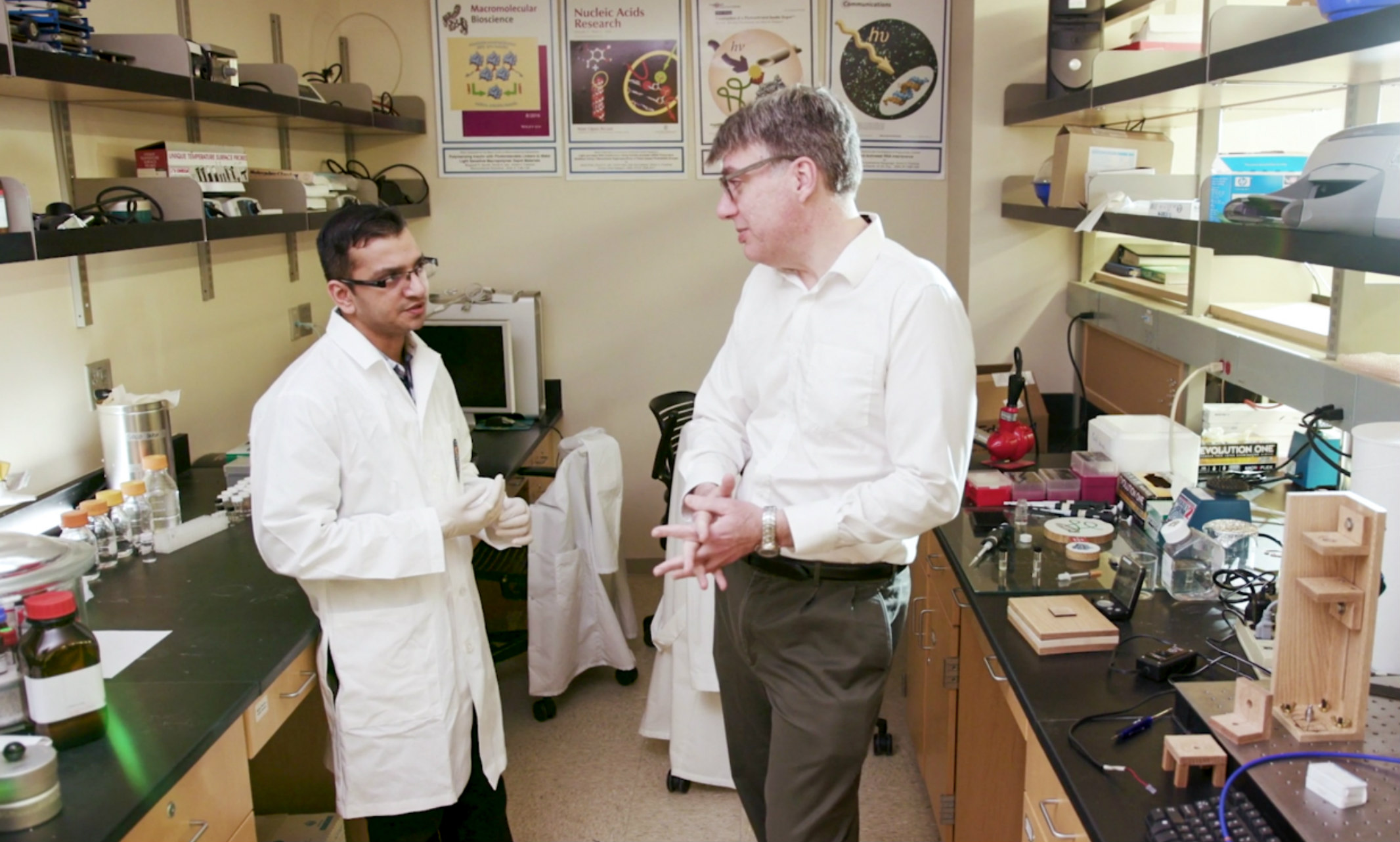The University of Missouri-Kansas City School of Pharmacy has been awarded a $1.5 million grant from the National Institutes of Health (NIH) to continue work on an important advancement to help treat the tens of millions of people who have diabetes.
The lifetime burden of constantly checking blood sugar and injecting insulin is significant. UMKC research has developed a way of delivering insulin to diabetics that eliminates pumps and most injections.
“We’re aiming to improve the lives of diabetics all over the world,” said UMKC pharmacy professor Simon Friedman, the principal investigator on the grant.
Normally, diabetics must inject themselves with insulin numerous times per day to enable the body to absorb blood sugar. The amount of insulin needed and timing vary with what an individual eats and their activity level. With blood glucose continuously varying, the insulin requirement parallels the amount of glucose in the blood.
The only clinically-used method to permit continuously variable delivery of therapeutic proteins like insulin is a pump. But they do so at a high cost: a physical connection to the outside of the patient, where the drug reservoir resides, and the inside of the patient, where drug absorption will ultimately take place. This connection in insulin pumps is a cannula — or needle — which can be dislodged, crimped, snagged, infected and most importantly, rapidly gets biofouled from moisture after implantation. This leads to variable and unpredictable delivery.
For several years, Friedman and his lab associates have been developing a method in which a single injection of a material called a PAD (photo-activated depot) can take the place of multiple normal insulin injections and allow for minute-by-minute automatic updating of insulin release. The material is injected into the skin like insulin, but lies dormant until a beam of light stimulates release of insulin, in response to blood sugar information.
The new grant will help make the technology more reliable for someone to use and easier to manage.
“With the improvements, we anticipate creating a new and revolutionary approach to continuously variable protein delivery, one that minimizes invasiveness and maximizes the close matching of therapeutic with patient requirements,” Friedman said.
Karen Kover, associate professor of pediatrics at the UMKC School of Medicine and Children’s Mercy, has been an integral member of the research team for years, and Friedman is grateful for her collaboration.
Reviewers of the grant application praised the work, and Friedman, who has won previous NIH funding, said this was his highest rated grant award.
“We are grateful for the enthusiastic response from the NIH study section, given the very competitive nature of funding at this time during the pandemic,” said UMKC Vice Chancellor for Research Chris Liu.
The project is supported by the National Institute of Diabetes and Digestive and Kidney Diseases at the NIH.
In people with type 1 diabetes, the pancreas no longer makes insulin. Patients need insulin to process sugar from meals.
People with type 2 diabetes make insulin, but their bodies don’t respond well to it. At first the pancreas produces extra insulin to make up for it. But over time it isn’t able to keep up and can’t make enough insulin to keep blood sugar at normal levels.
About 34.2 million children and adults in the U.S. — 10.5% of the population — have diabetes, according to the Centers for Disease Control and Prevention. More than 25 percent use insulin shots. About 86 million people ages 20 and older in the U.S. have prediabetes.
Complications from diabetes include heart disease and stroke, high blood pressure, blindness, kidney disease, nervous system damage and amputation.
People with diabetes risk more serious complications from COVID-19 than others who do not have the disease.
“Through research at UMKC, we strive to improve the health of not just our community but our entire population,” said Chancellor Mauli Agrawal. “We are proud of Dr. Friedman and his team’s innovation, which could significantly benefit people around the world.”

